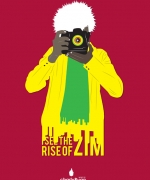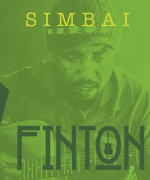Africa day: The story of how a continent fell off the horse
In the 1960s, Africa was collectively seized with decolonization, lobbying against apartheid and gaining political independence under the aegis of the Organization of African Unity (OAU), now the African Union (AU). Then, the AU was a fit for purpose, revolutionary oasis for all Africans in the struggle for self-determination. As a race under siege, facing down a common enemy, Africans mobilized for a unified pan African nirvana.
Africa day was a day to celebrate not only the uncoupling of the continent from the yoke of colonialists, but to celebrate the unity of purpose and the economic emancipation of Africans. Five decades later, the pan African ideals remain a deferred dream. Natives have still not achieved ownership and control of the means of production; the single leading cause of discontent and insecurity in Africa today.
Africa’s erstwhile ‘liberators’ and their offspring have lived long enough to mutate from heroes to villains. The pan Africanist euphoria for founder statesman has worn off. Uninspiring ethnic and clan based, kleptocracies have taken over in a characteristic pattern; compromised leaders with marginal grassroot support, heavily dependent on military force to hold onto political power.
This dystopia has in turn bred sceptical, materially driven citizens conditioned to hate, fear one another and to only look out for their own interests. Our continent still under siege has things that others covert yet don’t want to pay for. It is this largesse which has made both the economic recovery of the western world and the resurgence of China possible. The only real turning point for Africa is a fierce, electrifying, unrelenting energy to reinvent herself.
Consensus around a pan African Eldorado with the AU at the forefront still endures. Agenda 2063, is the AU’s continental 50-year agenda outlining the ‘Africa We Want’ as the blue print for Africa’s social, economic and political development. In this document, the AU ‘envisages an integrated continent; politically united and based on the ideals of Pan-Africanism and the vision of Africa’s Renaissance’. The document spells out several priority areas that its underwriters feel are top priority.
There is a general feeling that if we get our narrative right; telling the real African story puts us in better stead. Pundits prescribe sustained public awareness campaigns, involvement, support and ownership of the AU agenda by the African population. Reality is far more nuanced; how do we reimagine our lived reality of clan based corruption, nepotism and dereliction of duty embedded in the state machinery? How do we keep the young generation hopeful about the future when the older generation insist on presiding over their future?
Round trip intercontinental air travel is still cheaper than flying between African countries. Africans from the north to the south still face genocide, internal displacement, indentured servitude and state sponsored violence across the board. From the exploitations of minerals fuelling the next industrial revolution to the cultivation of the next crop of cannabis on the continent, Africans remain economic spectators and cheerleaders in their own backyard condemned to nostalgia.
As an ethnic minority in my own country, I can relate to feelings of being othered and existing on the periphery of society through the actions of compatriots who are a numerical majority. What more the many disparate ethnicities that exist in say, Sudan, DRC and Nigeria?
As we commemorate the sacrifices of our founding fathers throughout the continent, celebrated economic thinker Dr Amos Wilson’s advice remains central, ‘in a revolutionary change, the revolutionary people take control of their land and wealth. Otherwise they don’t have real power. Power is not the vote, but ownership of resources and labour. When you own these things, you can buy votes and buy elected officials’.
Africans must take full responsibility for a lack of economic power because we constitute the majority of the workforce throughout the capitalist enclave and the majority of consumers. Whilst we are engaged in the social dimension, others are fortifying their homelands against foreign encroachment and staking a claim on the inheritance of their grandchildren. African people’s indifference and complacency are the weapons that enable our continued bondage to other civilizations. Instead of forming more political parties and building churches, we need to consolidate economic power.
It’s not an easy proposition. South Africa, the continent’s biggest economy, is reeling from sporadic outbursts of xenophobia which point to the challenges for Africa’s integration. Mozambique and Nigeria are facing down Islamic jihadists in their resource rich zones. In addition, the youths on whose shoulders, Africa’s future rests are frustrated with the lack of opportunities at home. Their gaze is longingly and permanently cast at the west, yearning for the slightest chance to emigrate.
The arc of the moral universe bends towards justice and as long as there are citizens who remember how good it used to be, there will always be those willing to die fighting for what is right and just. Africans need collective security for surety against misgovernance because a system created to disempower us cannot stand if we do. My father’s generation had far less choices, yet they knew the price of freedom could never be too high.
Their example, like that of their forefathers; our ancestors should be made compulsory teaching. After all, it is the real story of the black child that needs to be taught to inspire generational introspection. The African people’s heroic exploits and their courage should be celebrated and anniversaries religiously observed as central to our identity.
The African must learn to do for himself or die out as the world realigns. We must forget about the classroom as it was created and focus on reawakening those amongst us that slumber by offering adult education to appreciate the real state of affairs and the supremacy of our collective economic power to inspire our people to live as abundantly as our continent affords.
There are enough Africans reinforcing the agency of the African identity in various disciplines from sports, film, business and education. In addition to the homecoming crusade, currently underway in West Africa, a throwback to the Marcus Garvey era, Africans worldwide need to close ranks and focus on their interests as a collective. The dead cannot cry out for justice. It is the duty of the living to do so for them. We have to evolve as a people or perish!



